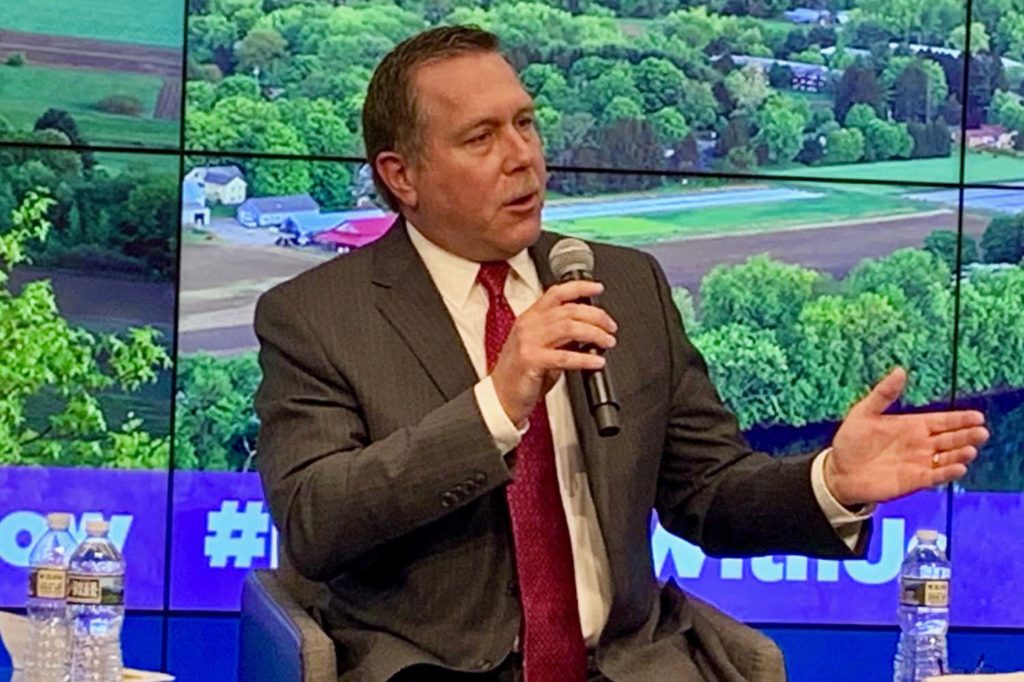
A broadband buildout to more than 16,500 members of a Pennsylvania electric cooperative is nearly paid for before the first fiber cable is spliced.
Through a convergence of federal, state and local funds and partnering, Tri-County Rural Electric Cooperative’s broadband subsidiary has acquired $51 million in grants to deliver high-speed internet access to its seven-county territory within three to six years.
Groundbreaking for the 3,250-mile fiber network is slated for August.
“We want to build broadband to deliver a better quality of life for our members,” said Craig Eccher, president and CEO of the co-op based in Mansfield, Pennsylvania. Eccher participated in an urban-rural digital divide discussion at the National League of Cities in Washington, D.C., on May 15.
“We have the funding in place to build the system. We have infrastructure to make it happen.”
Tri-Co Connections won a $32.5 million bid in the Federal Communications Commission’s Connect America Fund II auction to serve rural census blocks rejected by the large national broadband providers.
That led to the “first marriage” between a co-op and the Pennsylvania Department of Transportation and a $17.5 million grant for broadband infrastructure, Eccher said. Then came a $1.5 million grant from the Pennsylvania Redevelopment Assistance Capital Project program.
“If we didn’t win CAF II money, we didn’t win state money,” he said.
In April, the Pennsylvania Public Utility Commission determined that Tri-Co Connections met its criteria to serve as an “eligible telecommunications carrier.” It was the state’s first such designation to an electric co-op broadband subsidiary, which potentially carries additional regulatory obligations.
Three years ago, Tri-County REC sent out grassroots teams to discover the connectivity needs for health care, education and economic development in north-central Pennsylvania.
Almost half the school-age children receive subsidized breakfasts, and more than half will not seek secondary education. Instead, they will enter the military or the workforce, securing jobs created by the natural gas industry and others, he said. Broadband could spur economic development and teleworking to meet their needs.
“The infrastructure is in the school, [but] when they go home there is no connectivity. How do they get their schoolwork done?” said Eccher.
“It is important that we get this connectivity. We are concerned about these kids when these gas jobs dry up. We need to be smart about this and do better for that generation.”
Read more on rural broadband:
NRECA Urges FCC to Advance $20 Billion Auction to Deliver Broadband to Rural America
Takeaways From NRECA’s Broadband Case Studies
Listen to a recent NRECA podcast episode on rural broadband: